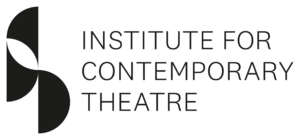How to master your acting audition
Confidence is key when it comes to acting auditions. Be mindful, proud and well prepared. Head of Acting, Gary Sefton, gives his best advice on how to master your acting audition.
Preparation
Make sure you’re wearing something you’re comfortable in; bring a change of clothes if you like. There’ll be a room for practice, so bring your pieces to look at.
Know the character and the play
Read the entire script beforehand to pick up as many clues as possible. We know about a character by the following:
- What he/she says about himself/herself
- What other characters say about him/her
- What the playwright or screenwriter says about him/her
Think of it as a two-minute play
To maximise your chances of doing the best in your audition, you should think of it as a two-minute show. More than that… think of it as a show the panel will watch with all the focus and attention of a two-hour show, only condensed down into an intense two minutes between you and them. Therefore, as with any play, your piece should have changes of mood, tone, pace and atmosphere. Any text or production that flatlines into one mood could prove colourless. This applies whether the mood is sadness, anger, grief… or anything else.
A good show needs to be a journey. It should employ movement and surprise in the telling of the story. Change is good.
Evoke the world of the play
Bring the whole world of the play onto the stage with you. It’s not just about the bit you’re doing for your audition, in isolation. An entire universe of events, ideas and moments must take shape in those two minutes. Everything needs to be distilled into an intense, rich experience. To bring the world of the play onto the stage with your character, ask yourself these questions:
- Who are you?
- Where have you just come from or been?
- What happened to bring you here?
- Why are you here now?
- What do you want? And how badly do you want it?
- Who are you talking to?
- Why are you talking to them? And what makes you start talking?
- What are you afraid of? What would be the worst outcome for you?
- How are all these things affecting your behaviour?
Work with these questions often. They’ll be of use continuously.
Fix your focus before you begin
For your sake, and that of the panel, take time to connect with what you want to achieve, or even avoid, in your performance. Remind yourself not to wonder if the panel likes you or what you’re doing. Resolve not to judge them, or your work. Time and effort spent on wondering, judging and conjecture is wasted focus and energy. Tell yourself that you’re not here to get into drama school – you’re just here to do your best, most focused and connected work.
Assure yourself that nerves are good, because you can use those nerves as a positive force, instead of allowing them to work against you. When you’ve done this, create the physical world and surroundings of the character. Where are you? What time is it? Are you hot or cold? Is it winter or summer? Get into detail.
If you spend time on this in your rehearsal work, you can ‘pop’ all of this into place in seconds. You’ll then be in your world and that of the character, not in the dreaded audition room – bonus!
Give your character a reason to start speaking
Hear in your head the lines that have just been said to your character. This may well be what’s prompting your character to react, or to decide to speak. Alternatively, run through what has just happened to you and why it happened. This will propel you in to why you’re speaking and what you, as the character, want. Remember: we speak because we must. Just before we utter words, there’s a compelling urge, a tingle, to vocalise our thoughts. We may be reacting to what’s just been said. We may have to seek justice, put facts straight, change someone’s mind or actions, get somebody to do something. There are many reasons to pipe up. But they’re all driven by a thought. We speak until that thought has been given expression, and then, unless there’s another thought, we stop.
End the monologue well
A lot of performers end badly, without style or conviction. Stay with the end moment. Let the glow settle. Don’t disengage from the world of the character too soon after the last line. This gives the impression that you may not have engaged fully. Stay with the end moment, and let the glow of what you’ve been doing settle. Stay in it and be proud. Don’t step away with any kind of sheepish, self-destructive look.
Even if you think you were rubbish, the tutors will have seen something that interested them. In all probability, you’ll be your own worst critic.
Let them be the judge of all that. Free yourself from that burden.
End with a bang, not with a whimper. You owe it to yourself.
For more advice on your audition and what to expect, read our full audition advice guide.


